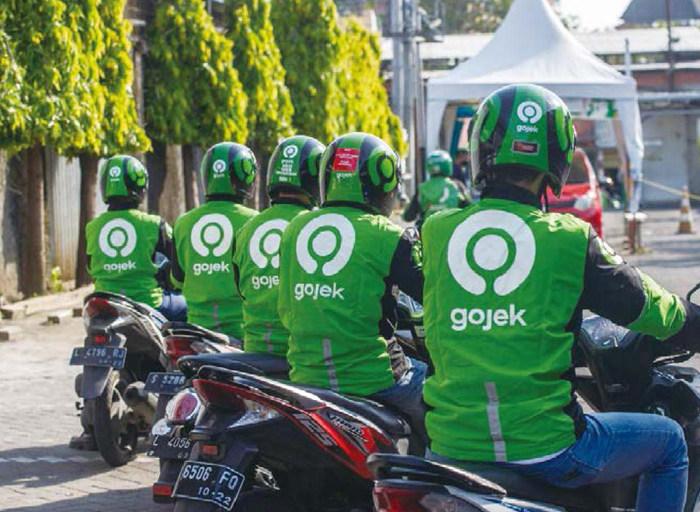东南亚未来的超级app Gojek将在新加坡大胆扩张
2022-03-14肯尼斯·G·黄
肯尼斯·G·黄

当超级app Grab在2021年12月2日于纳斯达克上市时,人们对其寄予了厚望。
Grab为东南亚各科技平台提供了前车之鉴,此后,人们开始关注Grab最大的竞争对手——由印尼Gojek和印尼电商龙头Tokopedia合并而成的东南亚第二大科技巨头GoTo集团。
GoTo集团于2021年11月筹资13亿美元,计划于2022年初进行首次公开募股。
其后,Gojek决定加注新加坡市场。在将泰国的业务剥离转让给亚洲航空后,Gojek声称其计划在新加坡开展更多业务。
Gojek进军新加坡市场会带来哪些变化?
Gojek会在新加坡扎根吗?也许它和其他跨国公司一样,想保持自己在国际门户新加坡中的存在感。真正的问题是,Gojek如何保持自己的竞争力优势并长期存续下去?它能为客户提供什么独特的服务?
这个问题对Gojek来说至关重要,它必须先明确如何在这个竞争激烈、日渐饱和的市场中与Grab和康福德高这样的市场主宰竞争。
由于激烈的竞争环境,單纯复制他人的出租车和外卖等服务模式还远远不够。当初竞争全靠价格战、优惠活动、各种折扣的日子也已经一去不复返了。
Gojek通过科技创新、成本领先战略和自身经济规模与经营范围等优势将竞争手段提高了一个档次,在诸多竞争对手中鹤立鸡群。
Gojek和Tokopedia完成了价值数十亿的合并,创立了GoTo集团,为Gojek带来了崭新的机遇和显著的竞争优势。
截至2022年1月,Gojek已入驻新加坡3年整。新加坡会成为Gojek一块优秀的试验田。
虽然新加坡的用户只能使用Gojek的打车功能,但其实GoTo集团在总部印尼能提供涵盖生活方方面面的服务:从网购到打车再从外卖到快递,应有尽有。这些服务都有可能被Gojek引进新加坡,观察市场反响。
如今,GoTo集团是东南亚最大的私营科技集团,但Gojek和Tokopedia目前并不打算合并业务,而是准备提升在支付、物流、外卖等方面的统一整合。
Gojek能提供崭新的骑手服务和更及时的外卖服务
如果Gojek将以上提到的业务扩展到新加坡,消费者就能有更多更有竞争力的价格选择。就像Grab外卖提供榴莲、月饼、米其林餐点配送一样,消费者也有机会看到Gojek在新加坡提供如上服务。
通过该app强大的外送数据分析功能,Gojek能从用户数据中获取更多关键信息,使其更准确地预测客户需求,提供食物、日用品、出行等方面的精准推送。
随着电子商务和交通运输的整合以及数据分析中心的开设,Gojek能高效捆绑配送订单,让骑手能在同一时间内就近在同一家商场或者同一家餐饮店取货送货。
同时,有了Gojek的沉浸式导航,能让骑手找到印尼临时施工的近路以及楼宇间汽车无法通行的小路。也许他们从此就能找到没人发现的送货路线,极大提升运输效率。
但更大的疑问在于,Gojek能否像在印尼一样提供大量的摩托出租车服务,能否为摩托车驾驶员提供安全保障等。Gojek之前就分析测试了单人乘客行程数据,并对前往新冠疫苗接种中心的用户精准提供折扣。这些迹象表明Gojek已有提供摩托出租车的意图。
Gojek会不会给外卖骑手配备电动摩托车也是一个问题。Gojek在雅加达与Gogoro智能电车合作完成了一项电动车试点项目。结果表明,平台的骑手留存率比Grab和Foodpanda都要好。电车计划也与Gojek的声明相吻合。Gojek曾在声明中表示,在2030年,平台的所有轿车和摩托车将全面换为电动型号。
还有一个问题——Gojek的“先买后付”计划能否向公众开放?
东南亚的下一个超级app
在未来5~10年中,Gojek公司希望齐心奋进,计划让公司建立起一个多层面的平台,供买卖双方交流,让双方在网购、外卖、出行、快递和其他服务上达成划算的交易。
公司的总体目标在于打造一个有活力的服务生态,并通过互补方完善生态内的产品、服务、创新等元素,从而让平台创造和掌控更多的价值。
除了为消费者提供一站式的app,这些新创造的价值还能回馈到消费者身上。这样一来,既能对物流业的Grab产生竞争优势,又能在电商层面挑战Shopee和Lazada等平台。
新加坡作为诸多科技公司的总部,必定能为Gojek带来越来越多的合作机遇。
为什么Gojek一定要走环保路线?
在文末,笔者希望提醒Gojek一句:贵公司应该把品牌形象定位成在环境、社会、治理(ESG)等方面有突出贡献的行业领袖。
交通行业因为碳排放问题一直受到外界的诟病,Gojek也应该早就意识到了这点,因此正在做出改变。在Gojek刚发布的ESG报告中,公司承诺将在2030年达成“零碳排放,零浪费,零障碍”目标。公司也强调了它将专注于推动社会经济进步、促进构建平等和包容的社会。
Gojek提出的愿景能引起消费者的价值观共鸣,尤其是快速增长的年轻客户群体。这些群体越来越看重公司对环境、社会、治理方面的贡献,并且会影响他们对产品和服务的选择。
在Gojek扎根新加坡甚至放眼东南亚时,如果遵循以上的战略选择,它就能同时惠及平台的消费者、工作人员、互补方、卖家和买家等。
对于消费者来说,Gojek是Grab和康福德高这些巨头之外的第三个选择,能带来更有活力的竞争环境,保证服务质量和价格维持在合理水平。
而平台工作人员和互补方也能从Gojek中获得更多的机遇,开展不同类型的工作,并提升他们在公司间的议价能力和工作选择。
对于买卖双方来说,多一个平台就代表着更多的产品和服务门类。
Gojek的崛起也代表着以上人群不再只能遵循占主导地位的市场规则。从长远来看,这对于激发市场活力,保持健康市场环境有利。
真正關键的问题在于,Gojek能否开拓出一个适合自己的细分市场来保持自己在新加坡的市场占有率,以便在新加坡这个重要的国际枢纽中蓬勃发展,并最终在上市时获得更高的估值。
来源:亚洲新闻台
编译:谢宗鸣
本文仅代表作者观点,不代表本刊立场
Anticipation was high when superapp Grab listed on the NASDAQ on December 2, 2021.
After trail-blazing a path for other Southeast Asia tech platforms, all eyes are now on its arch nemesis, the region’s second largest tech behemoth, GoTo Group, formed by Indonesia’s Gojek and e-commerce leader Tokopedia.
GoTo raised US$ 1.3 billion in November ahead of an initial public offering planned for in early 2022.
Gojek then decided to invest further in Singapore, announcing plans to introduce more services here, after hiving off Thailand operations to AirAsia.
What to expect as Gojek expands in Singapore?
Should Gojek remain in Singapore? Perhaps it wants to maintain a continued presence in the gateway to the world and where many MNCs have set up their headquarters.
The question becomes, how can the company ensure its sustainable competitive advantage and survival in the long term? What can it do differently for its app users?
This is an important question for Gojek as it figures out how to compete with dominant players like Grab and ComfortDelGro in this highly competitive, saturated market.
Given the intense competition, simply replicating the same set of services — taxi services and food delivery — is not enough. Gone are the days of price wars, heavily laced with incentives and discounts.
Instead, Gojek must take things to the next level to differentiate itself from its competitors, through technological innovation and cost leadership, and leverage the advantages offered by economies of scale and scope.
The multi-billion-dollar merger between Gojek and Tokopedia to form the GoTo Group presents new and exciting opportunities as well as competitive advantages for Gojek.
Come January it’ll be three years since Gojek landed on Singapore shores. The city-state can serve as a useful testbed.
Although Singapore users can only access its ride-hailing services, GoTo today provides a comprehensive set of services including online shopping, ride-hailing, food delivery, courier and other services in its home base of Indonesia — services it can port over to Singapore to see how the market responds.
Currently the biggest privately held technology company in Southeast Asia, Gojek and Tokopedia in the GoTo Group currently plan to remain separate but provide better integration on payments, logistics and food deliveries.
Gojek could offer motorcycle services and faster deliveries
If Gojek expands these offerings to Singapore, consumers can expect more options at competitive prices. Just as GrabFood opened up Michelin-starred meals, durian and mooncakes for delivery, consumers could expect fresh offerings from Gojek in Singapore.
With more powerful data analytics capabilities delivered through its app, Gojek can gain new insights from customer data, more accurately predict customer needs and provide better recommendations to users on food, household items and transportation needs.
With the integration of e-commerce and transportation, and the opening of a data centre here to leverage these insights, Gojek may have the capability to better bundle orders so that one driver can collect and make many deliveries from the same marts and F&B outlets at the same time.
And with Gojek’s immense experience helping motorcyclists find shortcuts through makeshift roads and small spaces between buildings cars cannot go through in Indonesia, perhaps they can offer undiscovered routes for deliverers here that massively enhance the efficiency of deliveries.
The bigger question is whether Gojek can offer pillion motorcycle passenger services in the way they do in Indonesia and if passengers will bite. Why else is it already testing out single-customer trips — and offering discounts for those heading to COVID-19 vaccination centres?
Could it offer an electric motorcycle service to delivery riders — after its pilot with Gogoro Smartscooters completes in Jakarta, locking in riders better than Grab or even Foodpanda? This move would be in line with its statement that it aims to make every car and motorcycle on its app an electric vehicle by 2030.
And will Gojek’s Buy Now Pay Later schemes be made available to users?
The next superapp in Southeast Asia
In the next five to 10 years, such concerted efforts could allow Gojek to build a multi-sided platform to bring sellers and buyers together, starting with online shopping, food delivery, ride-hailing, courier and other services in a cost-effective manner.
The overall goal is to create a vibrant ecosystem with complementors adding to its product and service offerings and innovations and hence, add more value to the platform it created and controls.
In addition to the one-stop “app” for consumers, these savings could be passed on to consumers and pose significant competition to current players not only in the logistics space like Grab but also in the e-commerce space like Shopee and Lazada.
Singapore being home to many tech companies surely offers opportunities for collaboration that Gojek may only be starting to discover.
Why Gojek must go green
A word of caution for Gojek before this commentary ends: The firm should also rebrand itself as an industry leader in environmental, social and governance (ESG) efforts.
Transport tends to get a bad reputation for carbon emissions, something Gojek probably already recognises and is seeking to change. In its recently launched ESG report, Gojek pledged to achieve “zero emissions, zero waste and zero barriers” by 2030. It has also highlighted its singular focus on socio-economic progress, equality and inclusion.
This vision would resonate well with the values of their consumers, especially a rapidly growing group of young customers who view a company’s ESG efforts as an increasingly important criteria in choosing their service and product offerings.
Gojek’s staying in Singapore, and more broadly in Southeast Asia, to pursue these strategic options will benefit consumers, platform workers, complementors, sellers and buyers using this platform.
For consumers, it provides an alternative to incumbent players such as Grab and ComfortDelGro, which helps keep pricing and quality of services competitive.
Platform workers and complementors of Gojek enjoy more opportunities and different types of work engagements as well as a boost to their bargaining power and work options.
For the sellers and buyers, an alternative platform implies greater variety and selection of products and services being offered.
It also means that they do not have to conform to one dominant set of rules in the market, which facilitates a more vibrant and healthier marketplace in the long term.
The key question is whether it can carve a niche for itself that not only allows it to maintain a significant presence in Singapore but also enable it to thrive in this important hub to the world — and score a better valuation when it finally lists.
· Source: Channel News Asia
The article only represents author’s views, not the stand of the magazine
2009500511229
